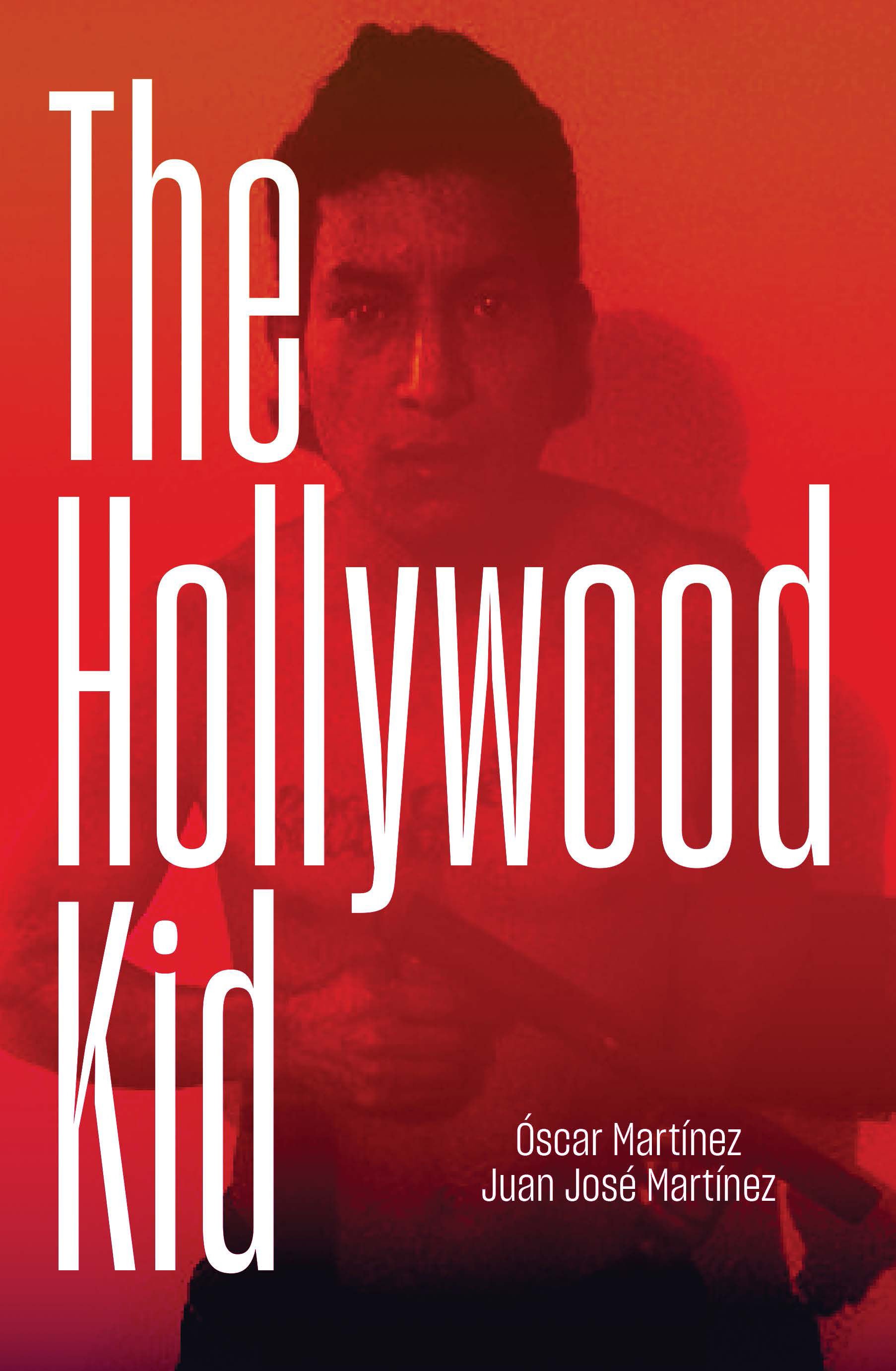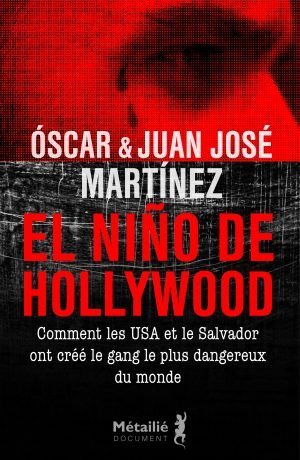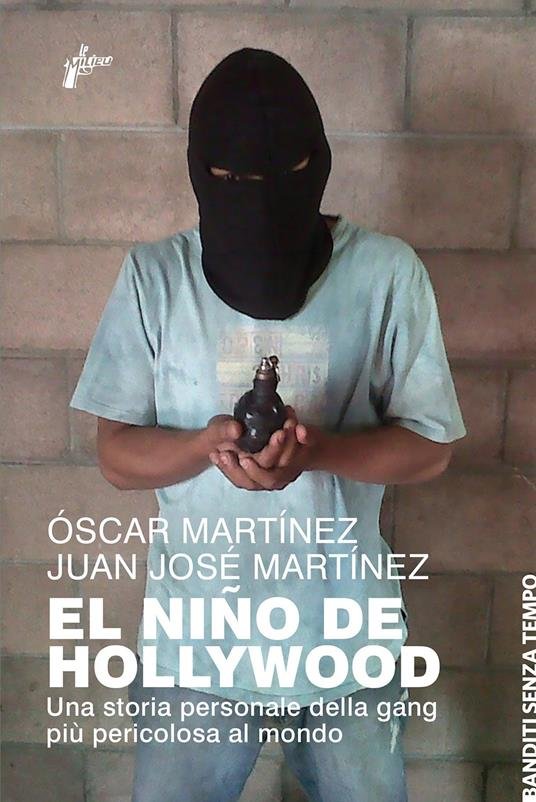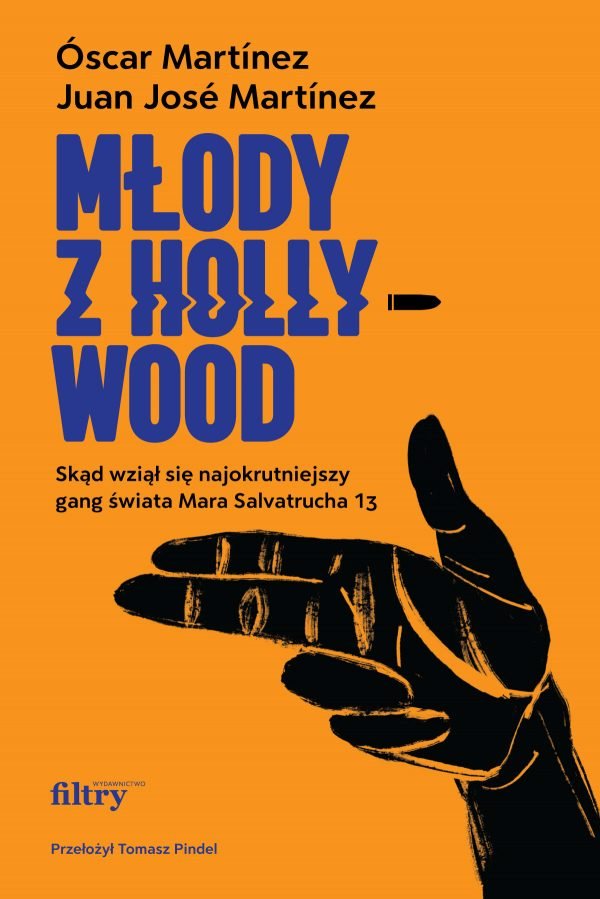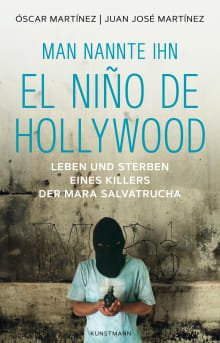El Niño de Hollywood
Óscar Martínez & Juan José Martínez
NON FICTION | 2018 | 256 pages
WINNER OF THE RODOLFO WALSH PRIZE FOR BEST NOIR NONFICTION BOOK
Miguel Ángel Tobar’s life isn’t just the life of a killer belonging to one of the most famous mafias in the most violent country in the world. Miguel Ángel Tobar’s life follows the trajectory of the Mara Salvatrucha from its beginnings in Los Angeles, California, to its arrival and rapid rise in El Salvador. El Niño Hollywood tells the story —through direct interviews and punctual stories—of the birth and rise of the only gang on the United States Department of Treasury’s black list.
This is the story of a group of deportees from the United States—about 4,000 of them, deported between the end of the eighties and early nineties— the ultimately became an army: it is estimated that today the Mara Salvatrucha has 30,000 members in El Salvador alone, plus several other cliques that operate on the United States’ East Coast.
Centering around the story of Miguel Ángel Tobar, aka El Niño Hollywood, the book will retrace the history of the Mara Salvatrucha, from its beginnings in California, to its current incarnations in El Salvador and other parts of Central America and the United States. Miguel Ángel Tobar is a gang member whose life perfectly captures the different stages of being a gang member: he was a poor kid with no prospects, tricked and recruited by an older criminal. He was a ruthless assassin—brutal. He was victim of the gang: the Mara Salvatrucha murdered his brother, also a member, for being a traitor. He was also a traitor: seeking revenge for his brother’s death, in 2008 Miguel Ángel Tobar started killing members of his gang and, in 2009, seeing that he was in great danger, he entered the Salvadorean Justice Department’s witness protection program. His testimony helped send thirty Hollywood Locos Salvatrucha gang members to prison, including his former leader and mentor, Chepe Furia. In the end, Miguel Ángel fell victim to his own gang and his own government: he was murdered in November 2014 while under the state’s protection, by three members of the Mara Salvatrucha. Miguel Ángel was on his way back home from registering the birth of his newborn daughter, recognizing her as his own.
Through vivid scenes, extensive conversations with the subject and meticulously researched historical facts, El Niño Hollywood will uncover the connections between gang violence in the United States and Central America, painting a portrait from within.
Read an excerpt in CrimeReads here.
RIGHTS: spanish EDITORIAL ANAGRAMA | english VERSO BOOKS | german KUNSTMANN | french MÉTAILIÉ | italian MILIEU EDIZIONI | polish WYDAWNICTWO FILTRY
“(El Niño de Hollywood) is a revelation. As they track a single tragic life Los Hermanos Martínez delve deep into El Salvador’s tortured labyrinth, into the macabre working of the Mara Salvatruches, into the sinister consequence of failed US policies and in the process recover what Neil Smith called the lost history of the American Empire. This is reportage made literature, darkness made light, and one of the most important books of investigative journalist I’ve read in years.”
“The book is simply amazing. Easily one of the best pieces of journalism I have ever read, one that gave me a visceral feeling for the “Kid’s” pain and for the pain he caused. The last part of it really filled me with a sense of dread and the inevitability of the fate of such a person. Besides the very great reporting, there is a real lyricism in your writing. Even as a translation, your way with words shines through. ”
“As the poet William Blake famously put it, ‘general forms have their vitality in particulars, and every particular is a Man’. The Martinez D’Aubuisson brothers’ beautifully written account of the life and death of the feared gangster El Niño de Hollywood, based on hours and hours of interviews with him and those close to him, starkly reveals the underlying dynamics of the Central American gang phenomenon in vivid and insightful detail.”
“This examination of the banality of evil forces us to look more closely. The book combines mythic story-telling in the style of magical realism with in-depth analysis and unsparing reports (…) of the everyday life of a war in which the perpetrators are victims themselves. It is a solemn warning of the spirals of poverty and violence that mislead the powerful as well as the powerless to commit crimes. ”
“So much blood and misery makes it rough, but it is never sensationalist or glorifying. It is a continuous stab of reality in the readers’ conscience, a reality that is condemned from beginning to end for all those implicated in this history of violence. This is great literary journalism... Few books are able to so devastatingly describe how life can feel like a condemnation.”
“In Spanish, the tradition of the crónica is in-depth testimonial reportage blended with personal essay, and Martínez is a worthy inheritor. Martínez’s work conveys an intimate knowledge of the social and criminal ecosystem—both macro-level context and telling minutiae. But because he isn’t afraid to follow dangerous paths, the result are jewels with moments of intense emotion presented against a historical background that contemplates military, social, economic, religious, psychological and all sorts of other factors…I am in awe of Martínez’s commanding style.”
“The book is simply amazing. Easily one of the best pieces of journalism I have ever read, one that gave me a visceral feeling for the “Kid’s” pain and for the pain he caused. The last part of it really filled me with a sense of dread and the inevitability of the fate of such a person. Besides the very great reporting, there is a real lyricism in your writing. Even as a translation, your way with words shines through. ”
“There are works with such strength that it’s impossible to read them all at once, you have to catch your breath in order to keep moving (...) Óscar and Juan Martínez, two gang experts in El Salvador—one a journalist and the other an anthropologist—allow us to understand the MS13 from the inside through the confessions of ‘El Niño de Hollywood,’ the nickname given to the killer at the center of the story, the result of a joint investigation carried out over several years.”
BY ÓSCAR MARTÍNEZ:
Los muertos y el periodista
NON FICTION, 2021
El Niño de Hollywood
NON FICTION, 2018
A History of Violence
NON FICTION, 2016
The Beast
NON FICTION, 2013

